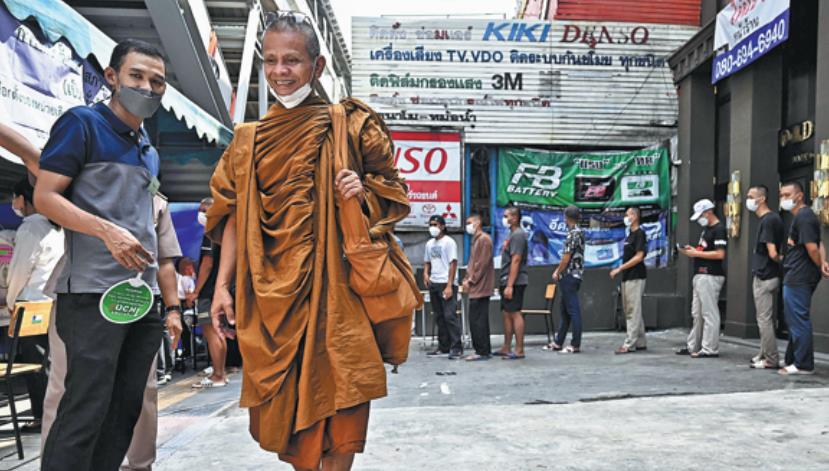Thailand casts vote in key election

Balloting system undergoes major revamp as citizens look for change

Polls for Thailand's general election closed on Sunday after a smooth vote at the 95,000 polling stations across the country. The election is widely seen as a turning point for a country that has undergone a major change in its election system.
Sunday's voting began at 8 am with about 52 million people casting their ballots to elect 500 members of the lower house of parliament, with about two million voting in early May.
Voting closed at 5 pm, with the Election Commission earlier projecting a turnout of 80 percent, Reuters reported.
Early opinion polls indicated the opposition Pheu Thai, led by Paetongtarn Shinawatra, daughter of former prime minister Thaksin Shinawatra, and the youth-led Move Forward parties would gain the most seats, according to the Thai National Institute of Development Administration or Nida Poll.
Move Forward, led by Pita Limjaroenrat, a 42-year-old former tech executive, has also been rising fast in opinion polls. Its young, progressive and ambitious candidates campaigned on a simple but powerful message: Thailand needs to change.
"I think the young generation is yearning for a change, from the continued rule of the elite that resulted in today's inequality to a truly democratic government," said Pravit Tang, a young voter in the capital Bangkok. "At the polling station I visited today, I saw young people more active than ever before. They wanted to have their voices heard in the election, no matter whether their support will make a turning point or not."
A total of 70 parties, 1,898 list-MP candidates and 4,780 MP candidates registered to contest this election, while 63 people have been named as prime ministerial candidates for 43 parties.
"This year's election is seen as a national agenda item to express the power of clean election", said Thai Election Commission Chairman Ittiporn Boonpracong at Saturday's news conference.
Security force deployed
On Sunday, about 150,000 police were deployed to ensure order at the 95,000 polling stations nationwide, according to national police chief Damrongsak Kittiprapas.
Thailand went through a major change in its election system in 2021 to allow capable individuals who lack political support from various fields to rely on parties' reputations to become members of parliament.
Unlike in the previous election in 2019, which adopted a form of mixed-member proportional representation, voters in this year's election got two ballot papers, of which one ballot is used to select a constituency MP and the other to select a party to lead the government.
Of the 500 members of the House of Representatives to be elected, 400 seats are from 400 voting districts across the country, and those who win the election will be directly seated in the House of Representatives. For the 100 party-list members, they will be divided based on how many votes the political parties get during the election.
Prayut Chan-o-cha, Prime Minister and the United Thai National Party's chief strategist and No 1 prime ministerial candidate, said in a recent interview with the newspaper Bangkok Post that the formation of the next government will depend on the negotiations between parties prompted by the ballots casts.
Agencies contributed to this story.

































